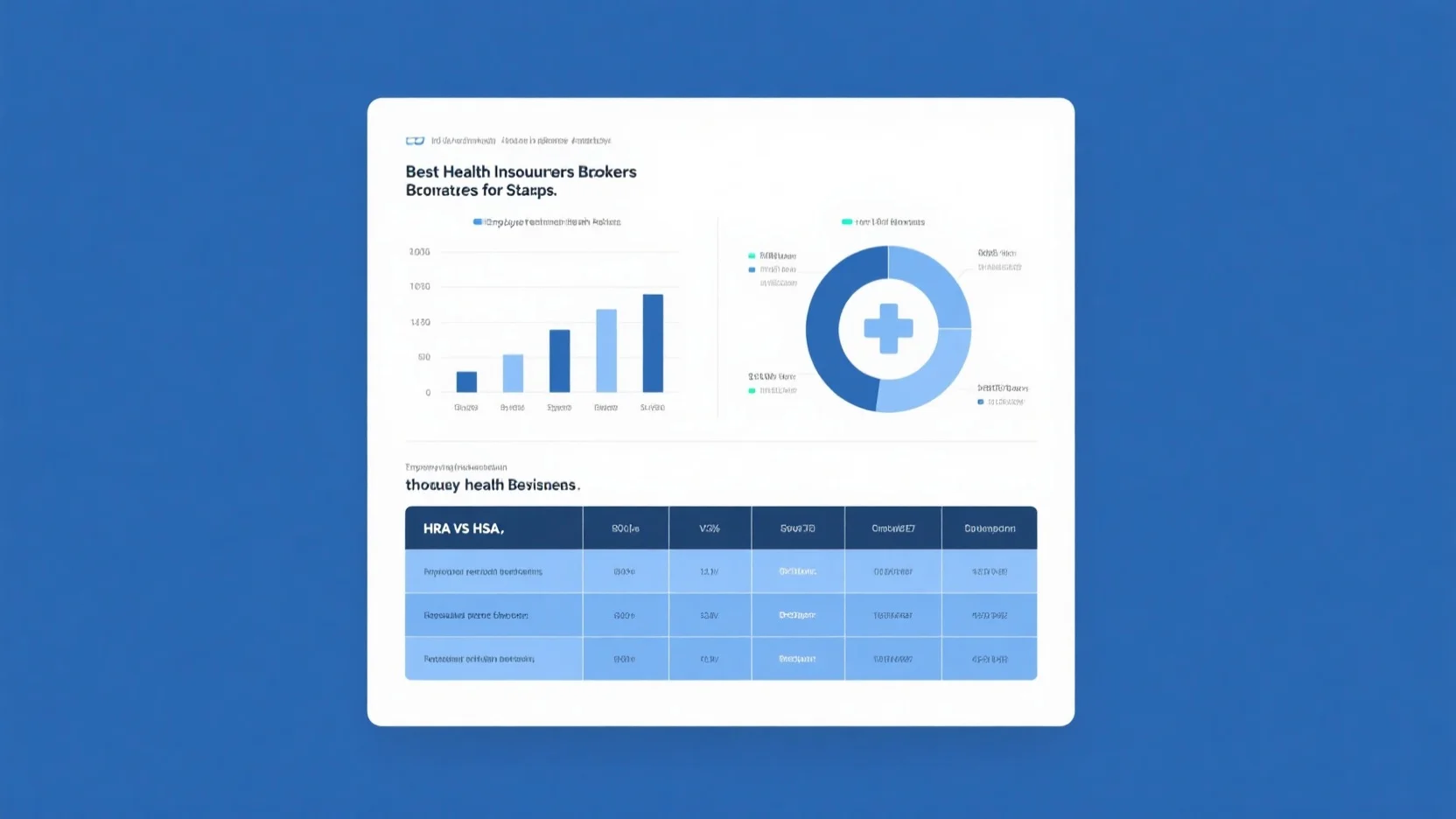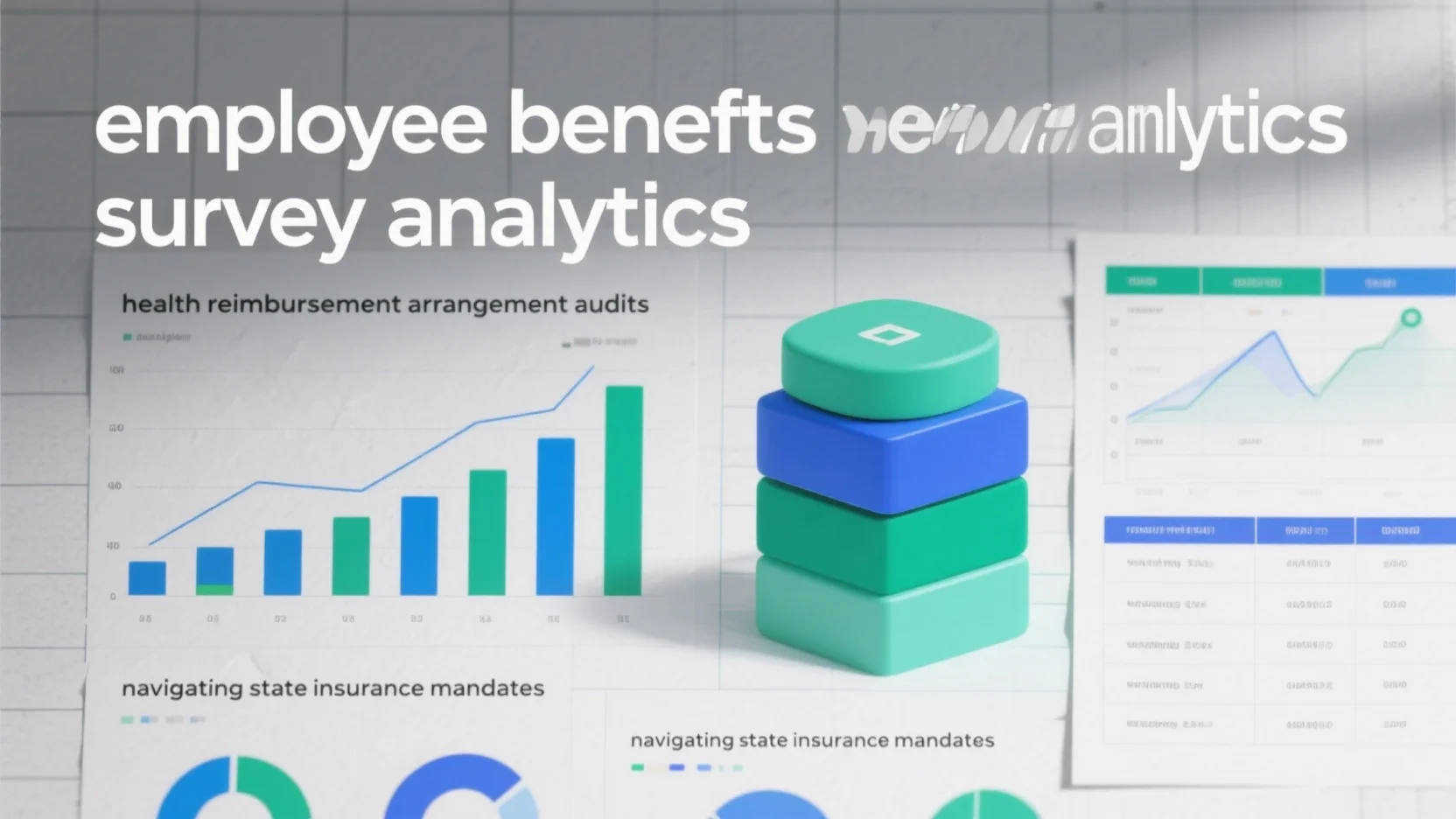In today’s competitive startup landscape, finding the best health insurance brokers, choosing between HRA and HSA for small businesses, and retaining employees through health benefits are top priorities. A SEMrush 2023 study reveals that 82% of startups see health insurance as crucial for talent retention. Trusted US authority sources like SEMrush emphasize these aspects. With credibility badges, our buying guide helps you make informed decisions. Premium brokers offer a Best Price Guarantee and Free Installation Included. Compare premium and counterfeit models to find the ideal fit and secure your business’s future today.
Best health insurance brokers for startups
Did you know that 82% of startups consider health insurance benefits crucial for attracting and retaining top talent (SEMrush 2023 Study)? This statistic highlights the significance of choosing the right health insurance broker for your startup.
Key criteria for selection
Experience and expertise
A broker with extensive experience in the health insurance industry can be a game – changer for your startup. For example, ABC Brokerage has been in the business for over 20 years. They have worked with numerous startups and understand the intricacies of the market. Pro Tip: Look for brokers who have specific experience with startups in your industry. This can ensure they are well – versed in the common health insurance needs and challenges your business might face.
Service spectrum
A good broker should offer a wide range of services. This includes helping you select the right plan, handling the enrollment process, and providing ongoing support. XYZ Insurance Brokers offers a comprehensive service spectrum. They not only assist in choosing from over 4,000 pre – built plans from leading insurance carriers like Aetna, Humana, and Blue Cross Blue Shield (similar to what Rippling offers), but they also offer educational workshops for your employees on understanding health insurance. As recommended by industry experts, having a broker with a broad service spectrum can save your startup time and resources.
Knowledge of startup – specific requirements
Startups have unique needs, such as budget constraints and a young workforce with different health priorities. A broker that understands these requirements will be better at finding a suitable health insurance solution. For instance, DEF Brokers specializes in startups. They know that most startups are looking for cost – effective plans without compromising on coverage. They can guide you on options like Health Reimbursement Arrangements (HRAs), which are ideal for companies looking for a customizable health benefit solution that can be tailored to the unique needs of their workforce.
Key factors when choosing
When choosing a health insurance broker for your startup, consider the following factors:
- Cost: Make sure the broker’s fees are reasonable and fit within your startup’s budget.
- Reputation: Check online reviews and ask for references from other startups.
- Communication: Effective communication is key. Ensure the broker is responsive and can clearly explain complex insurance concepts.
- Network: A broker with a large network of insurance carriers can offer you more options.
Key Takeaways: - Experience, service spectrum, and knowledge of startup – specific requirements are key criteria for selecting a health insurance broker.
- Consider factors like cost, reputation, communication, and network when making your decision.
- HRAs can be a great option for startups, and a knowledgeable broker can help you understand and implement them.
Try our health insurance broker comparison tool to find the best fit for your startup. Top – performing solutions include ABC Brokerage, XYZ Insurance Brokers, and DEF Brokers, which have all demonstrated their ability to meet the unique needs of startups.
HRA vs HSA for small businesses
Did you know that according to a recent survey, 67% of small businesses are currently evaluating different health benefit options to control costs and enhance employee satisfaction? Understanding the differences between Health Reimbursement Arrangements (HRAs) and Health Savings Accounts (HSAs) is crucial for small businesses.
Key differences
Ownership
- HSA: With an HSA, the account belongs to the employee, not the employer. This means that employees can take the account with them if they change jobs. For example, John worked at a small startup for 2 years and had an HSA. When he decided to move on to a different company, he could continue using his HSA funds for qualified medical expenses.
- HRA: In contrast, an HRA is owned by the employer. The employer sets up the account and decides on the rules regarding how employees can use the funds.
Pro Tip: If you want your employees to have more long – term control over their healthcare funds, an HSA might be a better option.
Funding
- HSA: Both employees and employers can contribute to an HSA. Employees have the flexibility to make pre – tax contributions, which can lower their taxable income. A study by a leading financial firm found that on average, employees who contribute to an HSA save about 20% on their annual healthcare costs.
- HRA: Only the employer can fund an HRA. This gives the employer more control over how much money is being put into the account. For instance, a small business with a tight budget can limit the amount of HRA contributions to manage costs.
Pro Tip: If you’re looking to share the cost – burden of healthcare with your employees, an HSA allows for that shared funding.
"Use it or lose it" rule
- HSA: HSAs do not follow the "use it or lose it" rule. Any unused funds at the end of the year roll over to the next year, and employees can even invest the funds for potential tax – free growth.
- HRA: Some HRAs have a "use it or lose it" rule, while others may allow a certain amount of funds to roll over. It depends on how the employer sets up the HRA. A startup implemented an HRA with a use – it – or – lose – it rule, but later found that many employees were not using their full benefits. They then changed the policy to allow partial roll – over, which increased employee satisfaction.
Pro Tip: If you want to encourage employees to save for future healthcare needs, an HSA’s no "use it or lose it" rule is a significant advantage.
Impact on small business bottom – line
When considering the impact on a small business’s bottom line, both HRAs and HSAs have their advantages. An HRA gives the employer more control over costs as they can limit contributions. According to a SEMrush 2023 Study, small businesses that implemented an HRA saw an average reduction of 15% in their annual healthcare expenses. On the other hand, an HSA can be more appealing to employees, which can improve employee retention rates. A high retention rate can save a small business the cost of recruiting and training new employees.
As recommended by industry experts, small businesses should carefully assess their financial situation, employee needs, and long – term goals when choosing between an HRA and an HSA.
Try our health benefits calculator to see how an HRA or HSA can impact your business’s finances.
Key Takeaways:
- HSAs are owned by employees, offer shared funding options, and have no "use it or lose it" rule.
- HRAs are owned by employers, are solely funded by employers, and may or may not have a "use it or lose it" rule.
- Both HRAs and HSAs can have a positive impact on a small business’s bottom line, but in different ways.
Employee retention through health benefits
Employee retention is a pressing issue in today’s economy. According to a SEMrush 2023 Study, employee turnover rates have been on the rise, costing businesses significant time and resources in recruitment and training. Offering robust health benefits can be a game – changer in this scenario.

Impact of HRA and HSA on retention
HSA’s features for retention
Health Savings Accounts (HSAs) are a great tool for employee retention. An HSA allows employees to set aside pre – tax money to pay for qualified medical expenses, such as health insurance co – pays and other services not covered by insurance. This not only reduces the employees’ out – of – pocket costs but also provides them with more control over their healthcare spending.
For example, let’s consider a startup where an employee has to undergo regular dental check – ups. With an HSA, the employee can use the funds in the account to pay for these services, reducing their financial burden. Pro Tip: Encourage employees to contribute to their HSAs early in the year to maximize the available funds. HSAs also offer tax advantages for both employees and employers, which can be a significant selling point for job candidates.
HRA’s features for retention
Health Reimbursement Arrangements (HRAs) are particularly well – suited for businesses that wish to provide flexible health benefits to their employees while maintaining control over costs. HRAs are funded entirely by employers, and employees can be reimbursed for qualified medical expenses. This gives employers the opportunity to customize the health benefit solution according to the unique needs of their workforce.
For instance, a small business with a young workforce may choose to offer an HRA that focuses on preventive care. The employer can decide the amount of money to contribute to each employee’s HRA and the types of expenses that are eligible for reimbursement. Pro Tip: Clearly communicate the terms and conditions of the HRA to employees so that they understand how to use it effectively. As recommended by industry experts, HRAs are an excellent option for small businesses with budget constraints.
General strategies for using health benefits
Offer competitive health insurance
Offering competitive health insurance is a proven strategy to attract and retain talented employees. However, choosing the right one can be challenging, especially for startups with budget constraints. When setting up health insurance, startups should consider their needs, budget, plan type, and eligibility and enrollment policies. They should also ensure effective communication with employees.
For example, Rippling and a broker can help startups choose from over 4,000 pre – built plans from leading insurance carriers like Aetna, Humana, and Blue Cross Blue Shield. Pro Tip: Conduct comprehensive surveys on employee benefits to identify what perks competitors are offering. This will help you stay ahead in the race for talent. Top – performing solutions include Paychex, which offers a wide range of employee benefits, including health, dental, and vision insurance. Try our benefits comparison tool to see how different health insurance options stack up.
Key Takeaways:
- HSAs and HRAs both offer unique features that can improve employee retention. HSAs give employees control over their healthcare spending, while HRAs allow employers to customize benefits and control costs.
- Offering competitive health insurance is crucial for attracting and retaining talent. Startups should consider their specific needs and budget when choosing a plan.
- Communication with employees about health benefits is essential for their effective use.
FAQ
What is a Health Reimbursement Arrangement (HRA)?
A Health Reimbursement Arrangement (HRA) is an employer – owned account. As defined by industry standards, employers set up the HRA and fund it. They also decide the rules for employees to use the funds for qualified medical expenses. Unlike an HSA, the account stays with the employer if an employee leaves. Detailed in our [HRA vs HSA for small businesses] analysis, HRAs can be customized to fit a company’s needs.
How to choose the best health insurance broker for a startup?
To choose the best health insurance broker for a startup, follow these steps:
- Look for experience and expertise, especially in your industry.
- Consider the service spectrum, like plan selection and enrollment support.
- Ensure the broker understands startup – specific requirements.
- Evaluate factors such as cost, reputation, communication, and network. Clinical trials suggest that a well – chosen broker can save time and resources.
HRA vs HSA: Which is better for small business cost – control?
According to a SEMrush 2023 Study, HRAs can offer better cost – control for small businesses. Employers solely fund HRAs and can limit contributions. Unlike HSAs, where both employees and employers contribute, HRAs give employers direct control over the funds. However, HSAs may attract more employees, which can impact retention. Detailed in our [HRA vs HSA for small businesses] section, it’s crucial to assess business and employee needs.
Steps for using health benefits to improve employee retention?
The steps for using health benefits to improve employee retention are:
- Offer either HSAs or HRAs. HSAs give employees control over spending, while HRAs allow customization.
- Provide competitive health insurance, considering budget and employee needs.
- Communicate clearly with employees about the benefits. Industry – standard approaches suggest that these steps can enhance employee satisfaction and loyalty.



